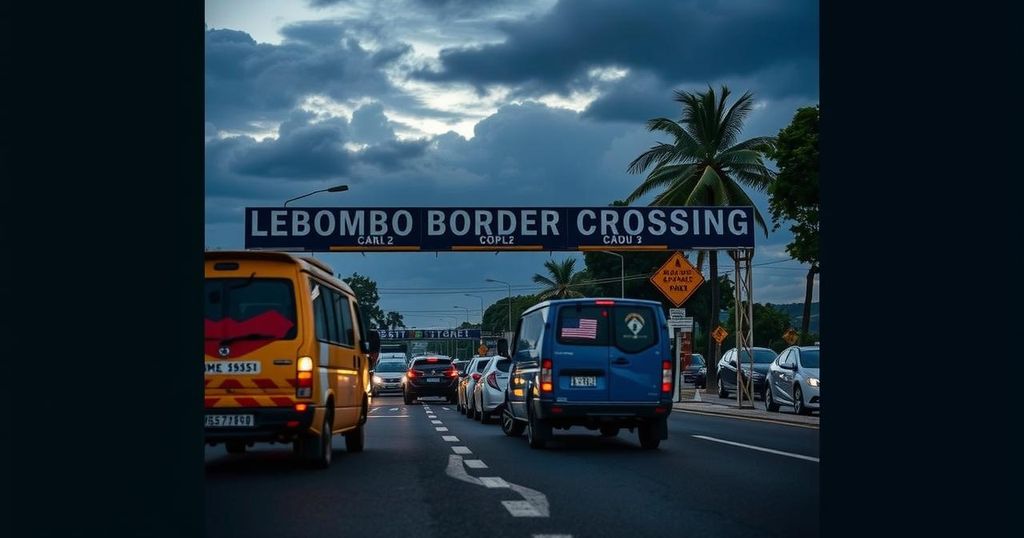South Africa has closed the Lebombo border crossing with Mozambique due to violent protests following a disputed presidential election. The unrest has resulted in property destruction, including arson incidents, and has raised safety concerns for travelers. Authorities have called for alternate routes as they address the potential spillover of violence. The current situation reflects deep political divisions within Mozambique and the implications for public safety at the border.
In response to escalating violence stemming from post-electoral unrest in Mozambique, South Africa has temporarily closed the Lebombo border crossing, one of the busiest land ports between the two nations. The unrest has erupted following a disputed presidential election which saw the ruling Frelimo party win, prompting violent protests and clashes resulting in casualties. Authorities reported incidents of property destruction, including an immigration office being set ablaze and vehicles set on fire, raising concerns for public safety at the border. Despite these tensions occurring within Mozambique, the South African Border Management Authority has emphasized that the situation on their side remains secure. However, to ensure the safety of travelers, they have advised the use of alternate routes. The unrest has led to the reported deaths of at least 18 individuals and has involved widespread internet and social media restrictions. Calls for further protests and a general strike continue, as opposition leaders express concerns over the electoral process and safety issues related to their political engagements. The unrest can be traced to the recent election results that favored the Frelimo party, with opposition leader Venâncio Mondlane facing threats that forced him into hiding. The current political climate within Mozambique poses potential risks for travelers and complicates relations at the border, thereby necessitating precautionary measures from South African authorities. The ongoing situation highlights the need for diplomatic and protective actions in response to civil unrest across borders.
The closure of the Lebombo border crossing follows a series of violent protests in Mozambique after a contested presidential election resulted in the ruling Frelimo party retaining power. The unrest is notable for its intensity, involving significant instances of violence, including public rallies turning deadly. It reflects a larger pattern of political dissent and division within Mozambique, exacerbated by claims of electoral misconduct and leading to heightened tensions between the opposing political parties and civil society. These events pose serious implications for regional stability and border security, especially as neighboring South Africa becomes directly impacted by these developments.
The temporary closure of the Lebombo border crossing underscores the severity of the civil unrest in Mozambique following the recent elections. It demonstrates the necessity for South African authorities to prioritize the safety of their citizens and travelers amidst violent protests. The ongoing situation serves as a reminder of the fragility of political stability in the region and the potential ramifications for international relations and safety measures in response to regional crises.
Original Source: www.bbc.com






